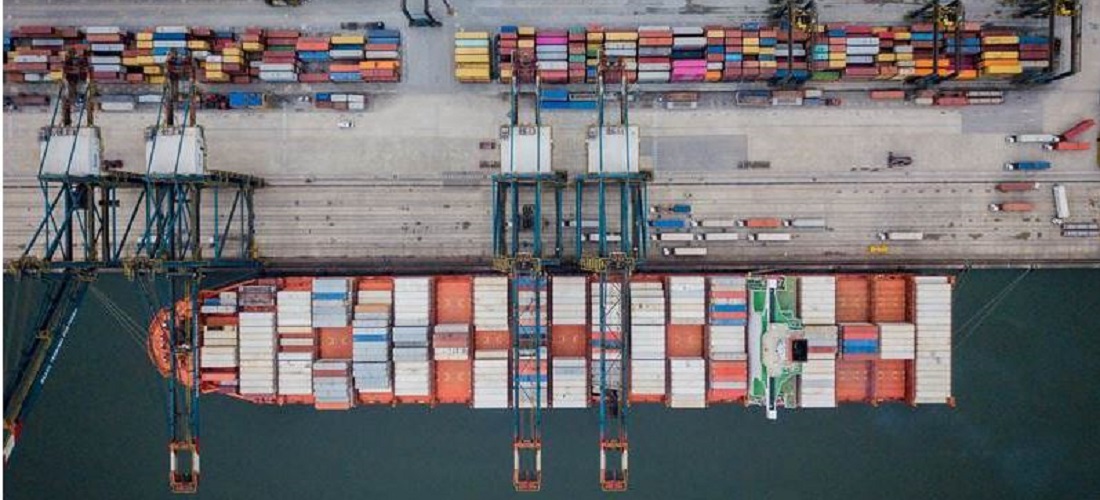
New terminal at Port of Santos seen as solution to increase port capacity
Oct, 17, 2024 Posted by Gabriel MalheirosWeek 202440
The Brazilian government’s decision to hold an auction for container terminal STS10 at the Port of Santos was well-received by the private sector, which regards the new terminal as an urgent solution to increasing port capacity. The terminal will be located at the Saboó pier, near Parque Valongo, and is expected to handle up to 3 million TEUs annually.
The updated plan, approved by the Ministry of Ports and Airports (MPor) and the Civil House, calls for four berths—one more than the initial proposal—boosting the port’s container handling capacity by 50%, from 6 million to 9 million TEUs.
The area allocated for STS10 is planned to cover 601,000 square meters. However, the MPor did not provide clarification on whether the concession area will be expanded to accommodate the fourth berth.
The original concession contract called for an estimated investment of R$ 3.3 billion and a 25-year term, with the auction being awarded to the highest bidder.
Murillo Barbosa, president of the Private Port Terminals Association (ATP), emphasized the urgent need to expand capacity, noting that current terminals in Santos are nearing their limits. He stressed the importance of planning for “land access” to avoid “disruptions in the city” as the new terminal will increase truck and rail traffic.
Jesualdo Silva, president of the Brazilian Association of Port Terminals (ABTP), expressed optimism about the STS10 lease, seeing it as a solution to expand container operations in Santos. However, he emphasized the need to know the project’s final details before providing a more in-depth opinion.
When asked if the contract could direct investments in access infrastructure to mitigate local traffic impacts, Silva confirmed it was possible, citing examples from other modal auctions where “cross-investment” practices allocate part of the concession fee to such projects, like building truck parking facilities.
Angelino Caputo, executive director of the Brazilian Association of Customs Terminals (Abtra), agreed that STS10 is essential, noting that current capacity, even with ongoing terminal expansions, will likely be insufficient by 2030. This aligns with the anticipated construction timeline for the new terminal.
Caputo also emphasized the need for synchronized efforts on bhe STS10 construction and road infrastructure improvements on the port’s right bank. Additionally, he suggested that better logistical coordination could help manage truck arrivals, reducing potential congestion. “If no action is taken, bottlenecks will worsen,” he warned.
The chart below reveals the performance of container exports and imports at the Port of Santos between January 2022 and August 2024, measured in Twenty-Foot-Equivalent Units (TEUs). The information comes from DataLiner, a Datamar-developed product.
Santos Container Exports & Imports | Jan 2022 – Aug 2024 | TEUs
Source: DataLiner (click here to request a demo)
Santos City Hall’s Perspective
The Santos City Hall was asked whether there are plans to address the potential traffic impacts in urban areas. In a statement, officials noted that they have not been officially informed about the new STS10 proposal and reiterated their demand to preserve the planned space for relocating the passenger terminal at Valongo.
Back in June 2023, Santos City Hall reported a land transfer agreement for a cruise ship reception area at Valongo, which was agreed upon with the Santos Port Authority (APS).
The City emphasized the importance of maintaining public berths to secure jobs for port workers and stressed that expansion plans must align with municipal interests, particularly regarding the revitalization of the Historic Center, including the Parque Valongo development.
Concais and Passenger Terminal Plans
MPor remains committed to moving the Giusfredo Santini Passenger Terminal from Outeirinhos to Valongo, asserting that cruise operations, which could see over 1 million passengers during the season, will not interfere with container traffic.
Concais, the terminal operator, stated that the new terminal project has been submitted to APS and is being developed in close coordination with the authority. They reaffirmed their commitment to supporting maritime tourism and boosting the local economy.
If the passenger terminal is relocated to the area between Valongo and Saboó in STS10 as intended, it could more than double in size, reaching 85,000 square meters. The projected investment of R$1.41 billion for buildings and access infrastructure would be split between Concais (R$662 million) and APS (R$748 million).
Ecoporto’s Future
Ecoporto Santos, whose terminal occupies 85,000 square meters of the STS10 area and whose provisional contract ends in December, did not comment before the publication deadline.
Source: A Tribuna
Original news article: https://www.atribuna.com.br/noticias/portomar/leil-o-de-terminal-no-porto-de-santos-e-visto-como-soluc-o-para-aumento-de-capacidade-1.438116
-
Ports and Terminals
Dec, 13, 2021
0
Coamo opens new terminal in Paranaguá
-
OTI Rankings
Dec, 14, 2022
1
OTI Ranking | DataLiner | Jan-Oct 2022 vs. Jan-Oct 2021 | Brazil and Plate
-
Ports and Terminals
Aug, 04, 2021
0
Argentine truck drivers block Bahia Blanca corn exports
-
Oil and Gas
Jul, 12, 2022
0
Importers in Brazil wary of Russian diesel import claims

